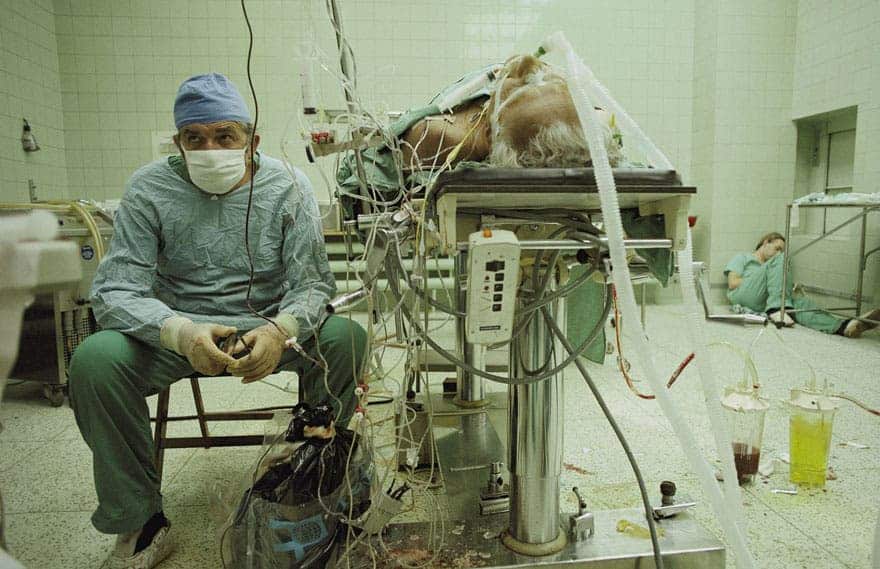There are no colleges in Poland. In our last year of high school, we had to decide where to continue our education. To help us make a conscious choice, our beloved Latin, French and an ancient history teacher, Mrs. Libera invited several of her graduated students to talk to us about professions they chose. To talk about being a doctor, she invited her recent pupil, now a student at Warsaw Medical School. One morning, a tall man with a round face and bushy hair entered our classroom. I looked at him and realized that he used to live in my housing complex on Żoliborz, not far away from our school. I often saw him walking early in the mornings and late at nights through our yard, probably going to and coming back from the university. We never spoke to each other. Mrs. Libera introduced my neighbor to us as Dr. Religa, knowing well, that he was just a medical student at that time. It just sounded better and gave him the extra ‘halo’ in our eyes. He was the person, she said, who can can give us first-hand insight into the study of medicine. It took a half an hour or so to describe the medical students’ routines, including stories from the lectures, long hours of studying the basic sciences, events in the autopsy room, meeting patients for the first time, assisting in surgery and so on. By the end, Mrs. Libera asked him to explain how important it is for any doctor to study Latin. To her horror, his answer was that not at all, and one can do quite well without. There went her intricate plan to motivate us to study her esteemed subject.
Dr. Religa disappeared from my everyday life. While I was working at the university, he worked in the other hospital in Warsaw. Now I know that when I was learning cardiac surgery in Charlotte, at the same he trained in Detroit. Then, I found out, he moved to a southern Polish town, Zabrze, where he became a chief of the cardiac surgery department at the local university. The pinnacle of his surgical career was the first heart transplant in Poland, which he did in 1987. The operation lasted twenty-three hours and the iconic picture of this event, done by a National Geographic photographer, was seen all throughout the world.
One can see the signs of battle: Religa’s assistant collapsed in the corner of the OR, tubes coming in and out of the patient’s body, and the surgeon probably watching heart monitors. The patient survived. And is still alive, twenty-nine years after Religa’s monumental effort.
While his surgical career was winding down, Religa started his political career, and in 2005 he ran as a candidate for the president’s office.
[embedyt] https://www.youtube.com/watch?v=J6ZKjzjUtY4[/embedyt]Dr. Religa died in 2007 of lung cancer. Despite all his medical knowledge, he continued to smoke. There were cases when he interrupted long operations just to have a cigarette.
The video is a tribute to this remarkable man. In his last interview, he said he was not afraid of dying and just hoped for not suffering in his last days.
He made the life of so many of his patients better. And that’s what every doctor is striving for in their professional life.
As far as Latin is concerned – no, one does not have to know this to study medicine and become a good doctor. But the knowledge adds up to one’s education and way of thinking in an incomparable way. In your third trimester of life, suddenly all the pieces of the puzzle are falling into their proper places and Latin is the glue keeping them together.
And the knowledge stays with you forever.
Arma virumque cano, Troiae qui primus ab oris
Italiam, fato profugus, Laviniaque venit
Litora….


